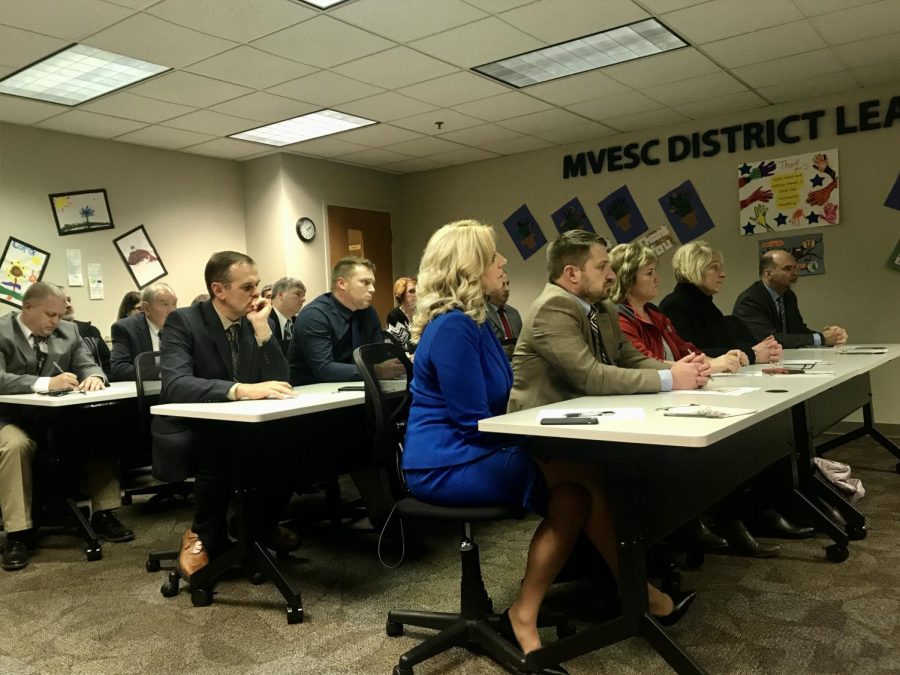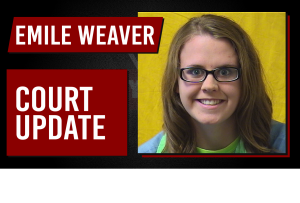Public school leaders fighting against proposed expansion of state voucher program
Public school advocates and superintendents gathered at the Muskingum Valley ESC Thursday to discuss widespread opposition to the expansion of the EdChoice Scholarship Program.
January 17, 2020
Superintendents, advocates and other public school officials met across the state Thursday to discuss the widely opposed expansion of the EdChoice Scholarship Program.
The EdChoice Scholarship Program gives eligible students in kindergarten through 12th grade who are attending a public school that qualifies as “underperforming” vouchers to attend other schools.
Qualifying EdChoice eligible schools are determined based upon the Ohio Department of Education’s report cards. Many public school officials that met at the Muskingum Valley ESC to discuss the legislation voiced their concerns about the state report card and its inaccuracy in categorizing public schools.
“What’s even more frustrating is that the idea, the concept supposedly behind the legislation is that we’re going to allow students to have the choice if the school itself, if the public school is underperforming,” Stephanie Starcher, Superintendent of Fort Frye Local School District, said. “Well, the criteria that is used to determine that the school is underperforming somes from ohio state report card system, which is widely criticised in Ohio for its lack of useful data and how calculations are made.”
According to a release from the Muskingum Valley ESC, 517 schools in Ohio are eligible for the vouchers. Following a recent change in the state budget, the number of eligible schools would grow by 400 percent next year to 1,227 public schools. That growth would mean that almost 70 percent of public schools in Ohio would be EdChoice eligible.
“That’s just astronomical when public schools aren’t seeing an increase in funding at this time,” Starcher said. “The only increase in funding that districts may have seen is the success funds that have been sent to school districts as part of targeting barriers, non-academic barriers to learning.”
Many public school boards are opposing the expansion and asking the state legislators to amend the program.
While many people present for the discussion at the Muskingum Valley ESC Thursday clarified that they are not against children attending private schools, the expansion of the EdChoice program would cause more tax dollars intended for public schools to pay for students’ private school education.
“This is not about public schools versus private schools. We’re not trying to attack private schools whatsoever,” Starcher said. “We’re trying to say that this program is based on a flawed system of identifying which schools are underperforming, and then we’re greatly concerned that tax dollars that could be generated in the local community will now be sent to pay for private school tuition.”
Tom Perkins, Superintendent of Northern Local School District, emphasized Starcher’s point stating that his school district, like many other public school districts, has positive working relationships with the private schools in his area.
“Unfortunately, we are now having people get their hands into a cookie jar that’s already running empty,” Perkins said in reference to funding for public schools.
During the 2018 to 2019 academic year, Ohio public schools lost $113.5 million to EdChoice Scholarships and another $148.2 million to the program this academic year, according to the release.
Additionally, an EdChoice Scholarship costs $4,650 per student in grades kindergarten through 8th grade and $6,000 per high school student each school year.
“This was not done by the people, it was not done for the people, it’s being done to the people,” Perkins said. “And we, as leaders of our districts many of you as parents and citizens, have a right to hold our legislators for the funds that we give them in taxes. And at no point have we voted for private schools to be funded by our public dollars.”
Dr. William Phillis, Executive Director of the Ohio Coalition for Equity and Adequacy of School Funding, compared the expansion to a person expecting the state to pay for private security for their home rather than relying on the local police department.
“It’s anti-public school legislation,” Phillis said. “It’s not a time to compromise, it’s a time to kill it.”















